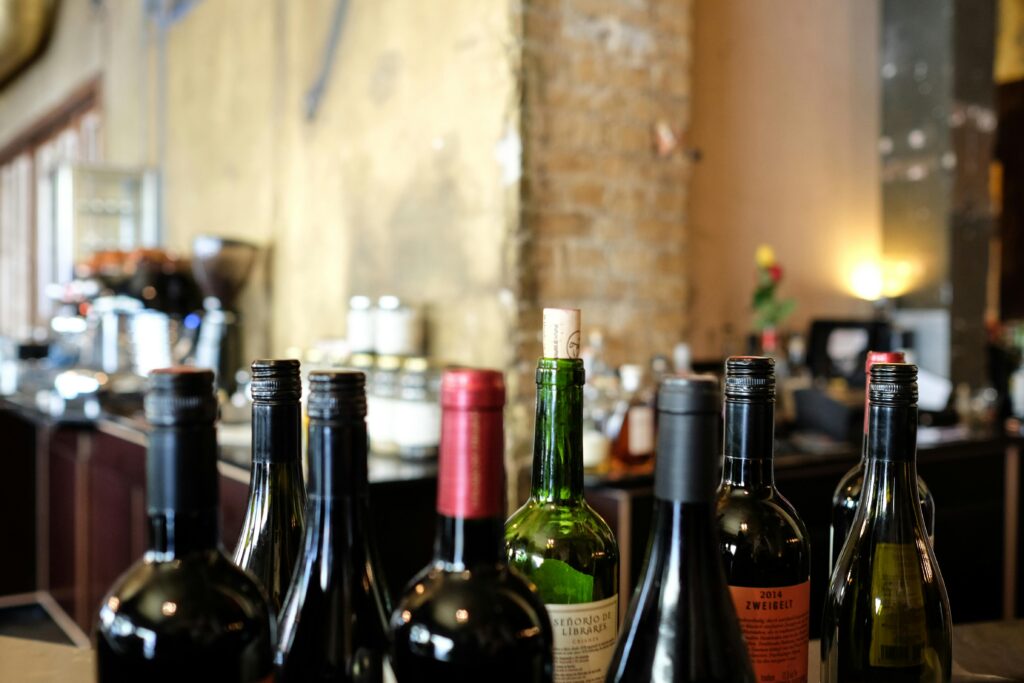U.S. President Donald Trump has issued a strong warning against the European Union, threatening to impose a 200% tariff on wine, champagne, and other alcoholic beverages. This move is in response to the EU’s plan to raise tariffs on American bourbon whiskey to 50%, further intensifying an already heated trade dispute.
Escalation of Trade Tensions Between the U.S. and EU
The trade conflict between the U.S. and the EU has been brewing for years, but Trump’s latest threat marks a significant escalation. On Thursday, Trump used his Truth Social platform to express his outrage over the EU’s planned tariff hike on bourbon whiskey, which is set to take effect on April 1.
The EU’s tariff hike is part of a broader retaliation package worth €26 billion ($28 billion), a response to Trump’s decision to impose a 25% tariff on steel and aluminum imports. In his statement, Trump made it clear that unless the EU reverses its decision, the U.S. will hit back hard.
“If this tariff is not removed immediately, the U.S. will shortly place a 200% tariff on all wines, champagnes, and alcoholic products coming from France and other EU-represented countries,” Trump stated. He claimed that the measure would give an advantage to U.S. wine and champagne producers, boosting domestic sales.
The U.S. and EU’s Longstanding Trade Disputes
The U.S. and EU have frequently clashed over trade policies, with disputes covering industries ranging from agriculture to technology. American producers have long criticized European trade regulations, particularly those governing food and beverage products.
For years, the U.S. has produced imitations of European goods such as champagne, parmesan cheese, and gorgonzola, bypassing protected geographical origin rules. The EU has fought to maintain these protections, arguing that they safeguard traditional products and support local economies.
The potential 200% tariff on European alcoholic beverages could significantly impact exports, as the U.S. remains one of the largest markets for French wine and champagne.
European Leaders Push Back Against Trump’s Threats
French officials quickly dismissed Trump’s warnings. French Foreign Trade Minister Laurent Saint-Martin strongly condemned the proposed tariffs, stating, “We will not give in to threats.” He accused Trump of inflaming an already fragile economic situation and emphasized that France is prepared to retaliate.
European winemakers are also growing concerned. Jean-Marie Fabre, a winemaker from Fitou and president of the Independent Winemakers of France, said the industry is already under pressure. “We have faced multiple challenges—COVID-19, inflation, the war in Ukraine, and climate change. Now, this trade war is making things even worse,” he explained.
The European Commission also responded strongly. European Commission President Ursula von der Leyen urged both sides to seek a diplomatic resolution. “Trade between the U.S. and the EU has brought prosperity and security to millions of people. A trade war will only harm businesses and consumers,” she stated.
Financial Markets React to Tariff Threats
Financial markets responded swiftly to Trump’s announcement. On Thursday, European stock markets saw a decline as investors reacted to the possibility of a transatlantic trade war. France’s CAC 40 index dropped 0.3%, while Germany’s DAX fell 0.6%.
Major European beverage companies took a hit. Shares of Pernod Ricard, the maker of Chivas Regal, fell by nearly 4%, while Rémy Cointreau, known for its luxury cognac, dropped 3.5%. LVMH, the parent company of Moët & Chandon, also saw a 1.4% decrease in stock value.
The impact was also felt on Wall Street. The S&P 500 opened 0.7% lower, reflecting investor concerns over escalating trade tensions. However, U.S. Treasury Secretary Scott Bessent downplayed the market reactions, stating, “We are focused on long-term economic growth. Short-term market fluctuations don’t define our strategy.”
The Broader Implications of a Trade War
Trump has repeatedly accused the EU of taking advantage of U.S. trade policies, calling it “one of the most hostile and abusive taxing and tariffing authorities in the world.” His latest actions suggest he intends to continue a hardline approach to trade negotiations.
The EU, on the other hand, has maintained that free trade is crucial for economic stability and growth. If both sides continue escalating tariffs, businesses and consumers in both regions could face higher prices and disrupted supply chains.
Economists warn that an all-out trade war could slow economic growth, increase inflation, and create instability in the global economy. U.S. consumers could see higher prices for imported European products, while American whiskey producers could suffer from declining exports due to EU tariffs.
As tensions grow, the coming weeks will be critical in determining whether negotiations can de-escalate the situation or if both sides will push forward with more aggressive measures.


